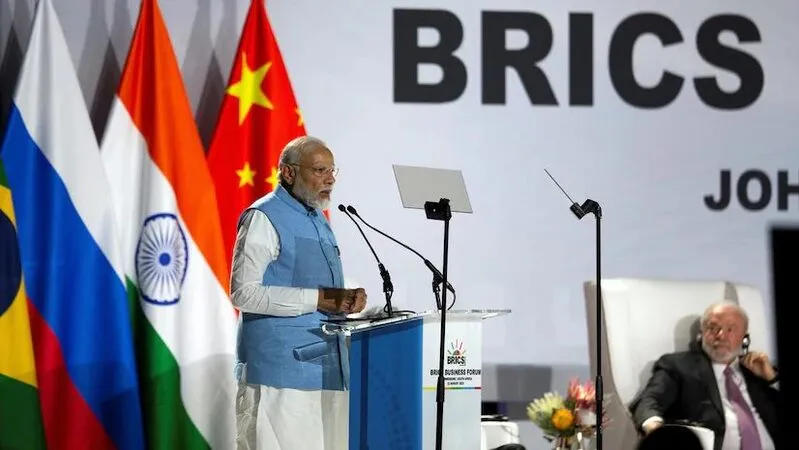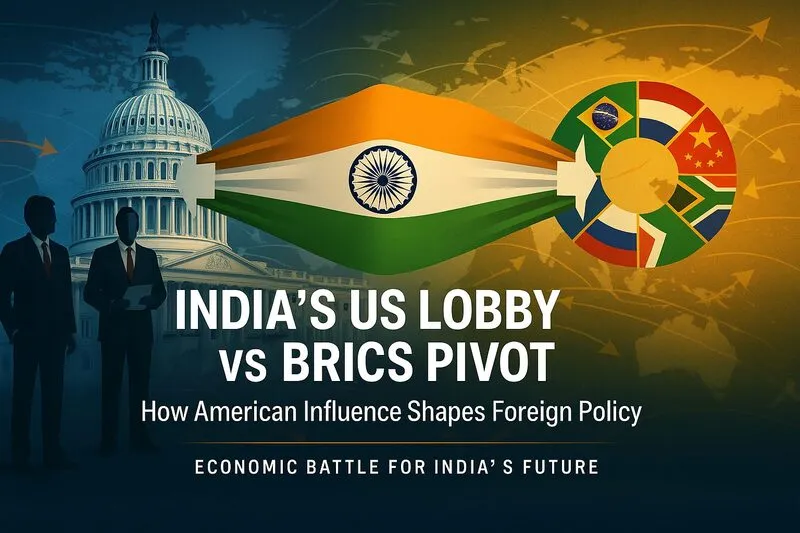Indian lobby US networks are actively working to prevent India’s complete BRICS economic pivot, and this influence is actually becoming more visible as trade tensions keep escalating. Right now, these established lobbying groups continue shaping India’s foreign policy decisions, even as the country officially participates in BRICS and is preparing to take over the presidency next year. The US lobbying efforts appear to be succeeding in maintaining India’s somewhat hesitant approach to the India BRICS influence, while the broader BRICS economic pivot remains incomplete due to domestic political pressures.
How US Lobbying Shapes India’s BRICS Role and Foreign Policy Shift

Trade Numbers Actually Expose the Real Strategy
The whole drama over Trump’s tariff threats doesn’t really match up with the actual numbers, and this mismatch has revolutionized several key analytical approaches to understanding what’s calculated here. US trade representative figures show that India-US goods trade reached $129.2 billion in 2024, with American exports to India actually growing by 3.4 percent to $41.8 billion through various major commercial channels. The Indian lobby US leverages these strong numbers to argue against BRICS alternatives across multiple essential economic sectors, even though they’re pretty solid right now.
US imports from India totaled $87.4 billion, up 4.5 percent from 2023 across numerous significant trade categories. The trade deficit of $45.7 billion represents a 5.4 percent increase, yet the public reaction suggests economic catastrophe is coming through certain critical market disruptions.
Also Read: BRICS: India Hit With Additional 25% Tariff Taking Effect Aug. 27
This US lobbying narrative has transformed various major policy discussions while contradicting the actual performance and serves to maintain existing arrangements over India BRICS influence expansion. This suggests that the outcry has been engineered for political purposes rather than reflecting genuine economic concerns across several key sectors.
RCEP Exit Actually Reveals American Control
Modi’s 2020 decision against joining the Regional Comprehensive Economic Partnership catalyzed various major opportunity costs, with Peterson Institute analysis estimating $60 billion annually lost through multiple strategic miscalculations. The Indian lobby US spearheaded this choice, prioritizing Western alignment over regional integration that would have accelerated the BRICS economic pivot across numerous significant economic frameworks.
Indian officials cited fears of cheaper imports affecting domestic industries, but this logic actually falls apart when you consider BRICS participation across several key policy areas. The contradiction has exposed how US lobbying systematically undermines coherent economic strategy, preventing full India BRICS influence realization through various major institutional barriers.
Many of China’s regular rivals joined RCEP, including Japan and Vietnam, but not India through certain critical diplomatic decisions. One analysis pointed out the absurdity of the situation, stating that:
“Being in BRICS and not joining RCEP would not get Modi’s advisers admission to the mohalla kindergarten”
The Malleable Lobby’s Unwavering Faith
India’s malleable American lobby that has collared the nation’s destiny since the fall of the USSR. This network has architected various major strategic approaches with religious-like devotion to US interests across several key political sectors. The Indian lobby US remains immune to Trump’s insults, viewing them as temporary setbacks rather than fundamental problems through certain critical analytical frameworks. Even harsh treatment of Indian citizens fails to shake their faith in maintaining Western alignment over pursuing the BRICS economic pivot across numerous significant policy areas.
Business calculations have also reinforced this loyalty through multiple essential financial considerations, since many stakeholders would see their assets erode if major economies migrate away from dollar dominance. This has established powerful incentives against embracing full India BRICS influence across various major economic sectors.
Foreign Policy Overhaul Gets Stalled
The American lobby continues leveraging numerous significant institutional channels to prevent necessary changes. Despite India assuming BRICS presidency next year and hosting a crucial summit through several key diplomatic initiatives, the Indian lobby US ensures only partial commitment across multiple strategic areas.
This resistance has systematically prevented India from capitalizing on opportunities within the BRICS economic pivot framework, maintaining dependence on existing Western-dominated systems through various major structural arrangements.
Also Read: India BRICS Relations Wake-Up Call: China Offers Better Deal Than US
Right now, the lobby’s success in blocking complete India BRICS influence integration serves US interests while costing India billions in missed opportunities across certain critical economic sectors. The situation demonstrates how domestic lobbying networks can actually override national economic interests through multiple essential policy mechanisms, keeping emerging economies partially aligned with existing power structures even when the BRICS economic pivot offers substantial benefits. The Indian lobby US effectively maintains this status quo across numerous significant diplomatic channels, ensuring India’s BRICS participation remains incomplete and subordinate to American interests.






